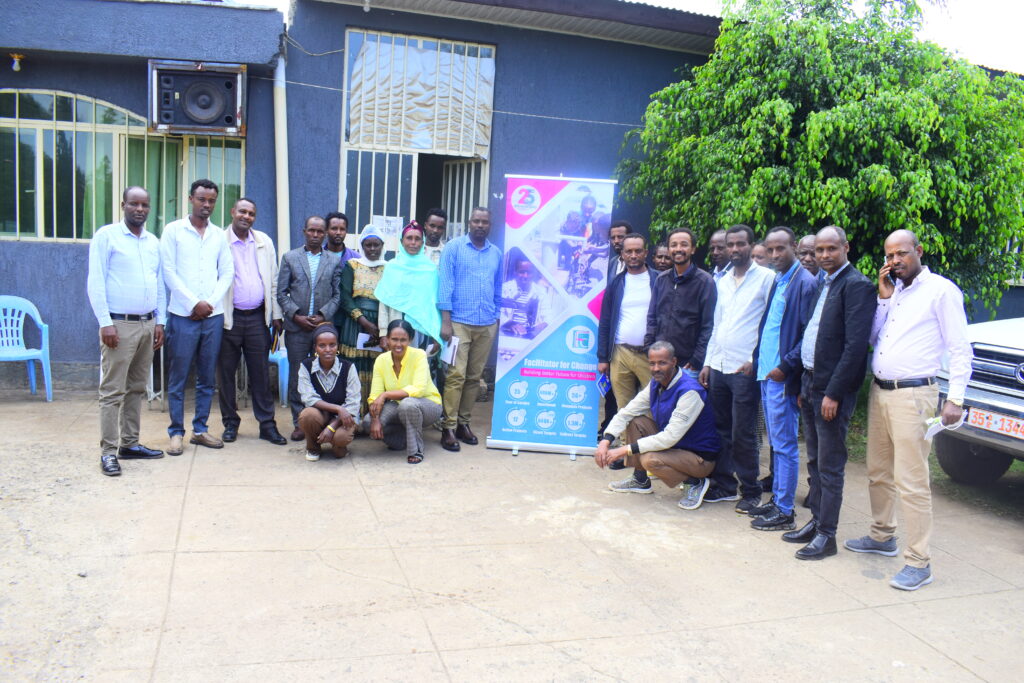Facilitator for Change (FC), in partnership with Kindernothilfe (KNH), officially launched the Birmadu Folle-II Integrated Community Development Project (BF-II ICDP), second phase through a collaborative workshop held at Waliso town of Oromia Regional state. The event gathered key stakeholders from local government offices, community structures, schools, and child-focused institutions to align efforts and jointly commit to creating safe, inclusive, and protective environments for children in the two targeted districts.
The BF-II ICDP is a five-year project (March 15, 2025 – December 31, 2029) implemented in the Tole and Illu districts of the South West Shewa Zone, Oromia. This expansion phase builds on the previous achievements of the Birmadu Folle-II first phase project. It focuses on the well-being, protection, and inclusive development of vulnerable children — particularly those out of school, living with disabilities, or at risk of economic exploitation.
Project Overview
- General Objective: To ensure that children live and learn in a safe and friendly environment across the target communities.
- Beneficiaries:
- Primary school children: 10,270
- Economically exploited out-of-school children: 200
- Children with disabilities: 100
- Pre-school (ECE) children: 400
- Total Direct Beneficiaries: 10,920 (5,460 male and 5,460 female)
Project Budget
The total budget for the project is ETB 61,327,377.00, of which:
ETB 49,857,140.00 is allocated for direct project implementation.
ETB 11,470,236.05 is allocated for administrative costs
This investment, supported by Kindernothilfe (KNH) – a German-based child rights organization – is expected to significantly enhance child well-being and protection mechanisms in the intervention areas.
Workshop Highlights:
- Orientation on Project Scope: The workshop detailed the objectives, target groups, and expected outcomes of the BF-II ICDP.
- Community-Based Approach: Emphasis was placed on child participation, community ownership, and integrating local resources into the intervention strategy.
- Key Focus Areas: Strengthening child protection systems, improving early childhood and primary education quality, and promoting inclusive development through child and youth participation.
- Stakeholder Commitment: Sector offices, school representatives, and community leaders expressed strong support and pledged collaboration throughout the project’s life span.

